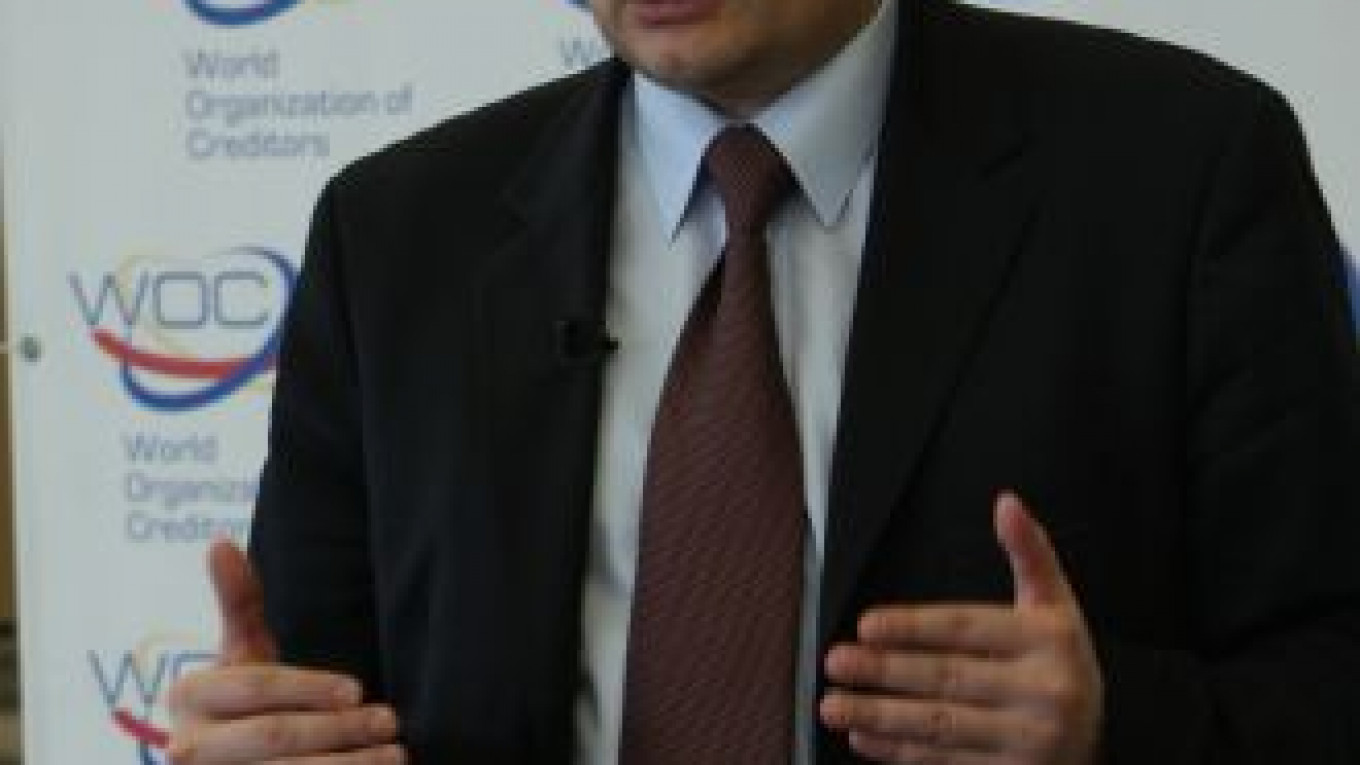The State Duma opened its fall session Tuesday looking to pass economic legislation that clarifies tough anti-monopoly regulations and puts further pressure on the country's rampant alcohol consumption.
In a bid to upgrade the country's antitrust practices, the Duma plans to pass the so-called third anti-monopoly package, which clarifies the previous, one-year set of laws in the field.
"This package is liberal compared with the second anti-monopoly package,” said Sergei Puzyrevsky, head of the legal department at the Federal Anti-Monopoly Service.
It would relieve companies of some liabilities that they are facing under the current legislation, he said. Rival companies that raise prices at about the same time without publicly announcing the move would avoid responsibility for concerted action, he said.
The new amendments will also carry clearer definitions of specific terms, including what constitutes a cartel, he said.
In addition, the third package would bind companies that the Federal Anti-Monopoly Service deems monopolies to hold tenders for any kind of purchase, said Yevgeny Fyodorov, chairman of the Duma's Economic Policy and Entrepreneurship Committee.
As far as the alcohol market is concerned, the pro-government Duma will try to curb consumption — a goal set by President Dmitry Medvedev — by helping crack down on cheap, illegal vodka, said Viktor Zvagelsky, a member of the Economic Policy and Entrepreneurship Committee.
The legislation will put a heavier emphasis on weeding out illegal liquor from retail sales, whereas previous efforts focused on wholesale and producers, he said.
The measure would make it possible to track down illicit alcohol producers and reduce the amount of illegally produced vodka on store shelves to no more than 12 percent, compared with the current 50 percent, he said.
The goal of drastically reducing sales of illicit vodka in stores looks unrealistic, said Vadim Drobiz, director of the Research Center for Federal and Regional Alcohol Markets.
“I think it's impossible,” he said, adding that most vodka consumers are interested in whatever is cheapest, rather than legal production, which is subject to excise taxes. “Much depends on the consumer and his financial footing.”
Vodka producers now pay 75 percent of the excise duty, leaving the pure alcohol makers to pay 25 percent, Drobiz said. As part of the anti-alcohol campaign, the Duma plans to shift the responsibility for paying the excise duty on alcohol to the producers of pure alcohol from the producers of vodka, he said.
In another move, the Duma plans to classify beer as an alcoholic beverage, which means that beer with an alcohol content of more than 5 percent by volume would be banned from sale at the country's ubiquitous street kiosks, Zvagelsky said.
Under further amendments that the Duma plans to approve, producers of liquor, wine, beer and low alcohol-content drinks will pay a single excise duty on their products as of July next year, he said.
The Duma also plans to consider bills that would help modernize the Russian economy, another key Kremlin priority. One of them would give tax breaks and easier customs procedures to companies that do business in the Skolkovo innovation city, which is designed to become Russia's answer to Silicon Valley, Fyodorov said.
“We are actually gradually entering an economic revolution,” Fyodorov said separately in a statement from his committee, referring to a boost that Skolkovo will give to Russia's high-tech industry.
The Duma is going to consider easing the burden on small businesses as well by replacing mandatory licensing in some areas for liability insurance, the statement said.
A Message from The Moscow Times:
Dear readers,
We are facing unprecedented challenges. Russia's Prosecutor General's Office has designated The Moscow Times as an "undesirable" organization, criminalizing our work and putting our staff at risk of prosecution. This follows our earlier unjust labeling as a "foreign agent."
These actions are direct attempts to silence independent journalism in Russia. The authorities claim our work "discredits the decisions of the Russian leadership." We see things differently: we strive to provide accurate, unbiased reporting on Russia.
We, the journalists of The Moscow Times, refuse to be silenced. But to continue our work, we need your help.
Your support, no matter how small, makes a world of difference. If you can, please support us monthly starting from just $2. It's quick to set up, and every contribution makes a significant impact.
By supporting The Moscow Times, you're defending open, independent journalism in the face of repression. Thank you for standing with us.
Remind me later.






